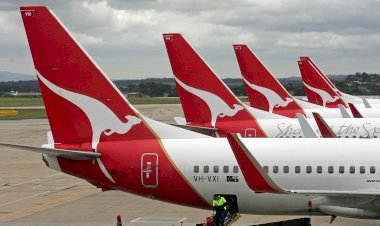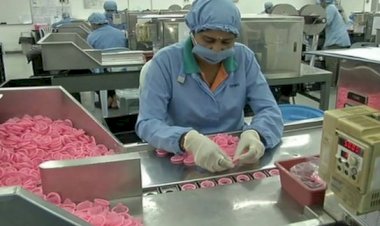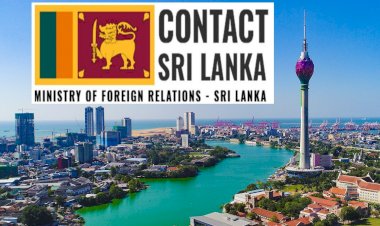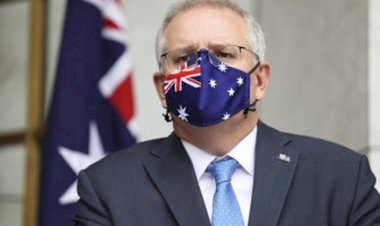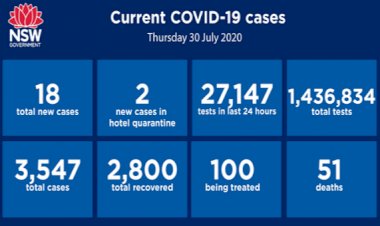Coronavirus symptoms and what should you do if you have it
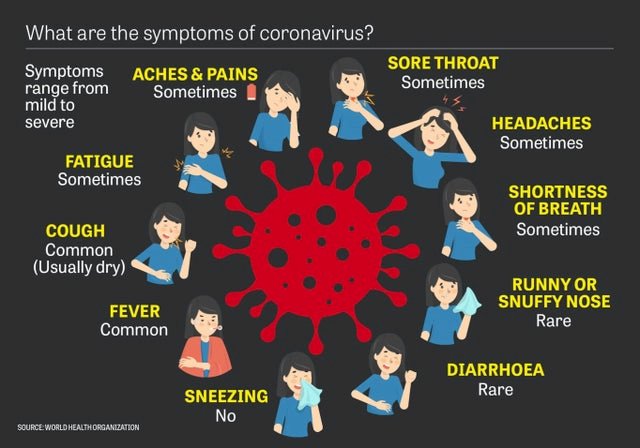
COVID-19 is a respiratory illness that can affect lungs and airways. It is caused by a virus called coronavirus.
The Covid-19 strain of coronavirus, which has already infected more than 119,000 people around the world, has several common symptoms:
The most common symptoms are:
- Fever
- Tiredness
- Dry cough
But some people also experience:
- Aches and pains
- Nasal congestion
- Runny nose
- Sore throat
- Diarrhea
These symptoms are usually mild and begin gradually.
As with other viruses, like the flu, some groups will be worse affected than others. Older people, and those with pre-existing conditions, are at greater risk of dying from Covid-19.
This is because those groups are likely to have weaker respiratory systems - one of the main areas of the body that the virus attacks.
In contrast, healthy toddlers and children seem to be only very mildly affected by the virus, according to the World Health Organisation.
According to the World Health Organisation (WHO), some people become infected but don't develop any symptoms and don't feel unwell.
Experts say up to 80 per cent of people who get COVID-19 will recover from the illness without needing special treatment.
But one out of six will become seriously ill and develop breathing difficulties.
Older people and those with underlying health problems such as cardiovascular disease, diabetes, respiratory problems and high blood pressure are more likely to develop serious illness.
Symptoms will generally appear three to four days after exposure to the virus, but sometimes up to 14 days later.
In Australia, the people most at risk of getting the virus are those who have recently been in a high-risk country or region, and people who have been in close contact with someone who has coronavirus.
If you have returned from a country or region that is at higher risk for COVID-19, you cannot attend work if you work in a setting with vulnerable people.
According to federal Health Department advice, we have learned from previous experience with other coronaviruses that the people most at risk are those with compromised immune systems, such as people with cancer
If you have symptoms of coronavirus, authorities recommend you seek medical attention.
If you are in Australia The first thing to do is to call the coronavirus health information hotline on 1800 020 080.
It's operating 24 hours a day, seven days a week.
They will tell you whether you should go to a clinic attached to a hospital in your area or to your GP (making sure to call them ahead of your visit).
They may advise you to go to one of the 100 pop-up and drive-through clinics that are being set up across Australia.




 mode1
mode1 






